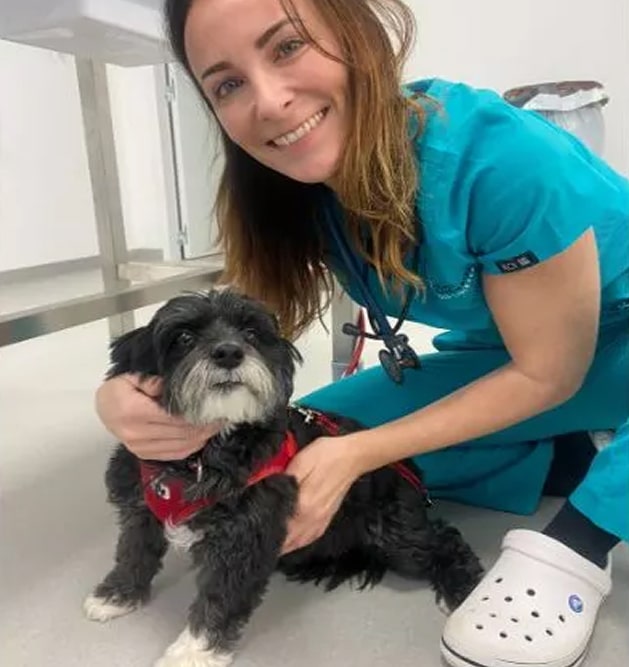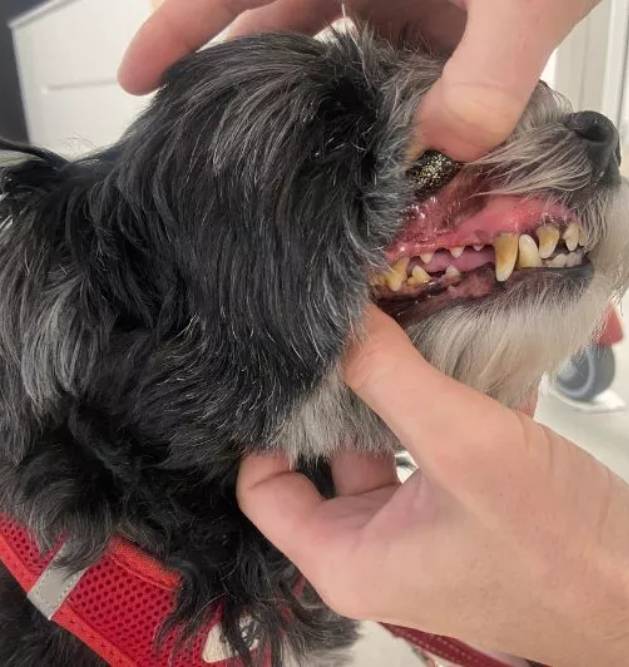
Veterinary dentistry
Dental care and extractions in dogs and cats
Oral health is an essential aspect of your pet’s overall well-being. Over time, tartar, dental plaque, and gum inflammation can lead to pain, infections, or even tooth loss. Our veterinary clinic offers comprehensive dental care, from scaling to tooth extraction, to help maintain a healthy mouth and ensure a good quality of life for your pet.
Scaling: the foundation of prevention
Veterinary scaling is a procedure performed under general anesthesia, allowing tartar to be removed from the teeth and below the gumline. It is followed by polishing to slow down the reappearance of tartar. This treatment prevents the progression of gingivitis and periodontal disease, two common conditions in adult dogs and cats. Regular brushing or dental care products can then prolong the effects of scaling and limit plaque formation.
Tooth extraction: a solution when the tooth is too damaged
In some cases, a tooth extraction becomes necessary: fracture, deep infection, loose tooth, or irreversible damage to the root. The procedure is performed under general anesthesia in optimal safety and comfort conditions. Special attention is given to pain management before, during, and after surgery to ensure a smooth and stress-free recovery.
Why consult for dental care?
Bad breath, difficulty chewing, loss of appetite, or changes in behavior may be the first signs of a dental problem. A preventive veterinary consultation helps detect these conditions before they cause pain or more serious complications (infections, kidney or heart issues linked to oral bacteria). Thanks to modern veterinary dentistry, appropriate equipment, and gentle care, we provide your dog or cat with high-quality dental treatment that respects their well-being and long-term health.
Dental prevention: an essential role in avoiding oral diseases in pets
Good oral hygiene not only preserves the health of teeth and gums but also improves your dog’s or cat’s long-term quality of life.
Our tips for good dental hygiene:
- Brush your pet’s teeth regularly using a suitable toothbrush and a specific veterinary toothpaste (never human toothpaste).
- If brushing is difficult, a spray alternative is available: simply lift the lip and spray directly onto the teeth, or use wipes soaked in an appropriate solution to gently rub the teeth.
- Offer dental treats made with algae, which modify saliva and help delay the appearance of tartar.
- Provide chewing sticks or cleaning-effect toys that help reduce tartar buildup.
- Add dental care additives to your pet’s water or food to support daily prevention.
- Schedule regular dental check-ups during veterinary visits to detect any abnormalities early. In all cases, we examine your companion’s dental health at least during every vaccination visit.


Regular monitoring of your pet’s mouth can prevent unnecessary pain and limit the need for invasive procedures such as tooth extractions.
Preventive dental care is therefore the best way to maintain your pet’s overall health, as a healthy mouth also contributes to a healthy heart and kidneys.
RATES
Quotes for all scaling or dental procedures are provided during consultations on a case-by-case basis, after examination and assessment of your four-legged friend’s oral cavity, due to the wide variability in the work required from one mouth to another.

